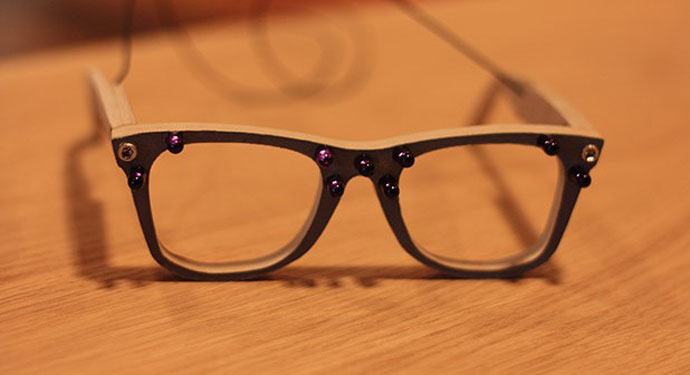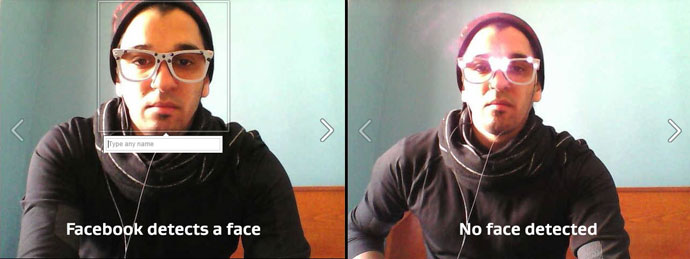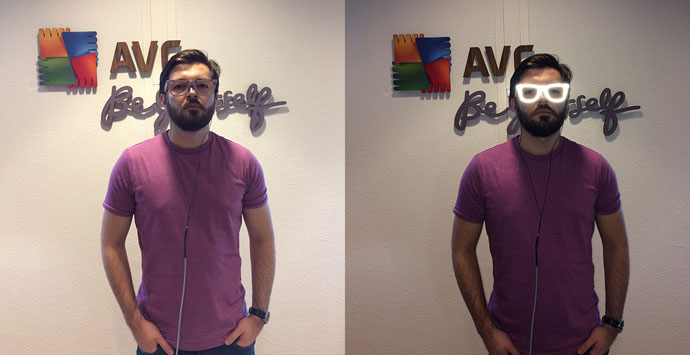New Glasses Will Make You Invisible To Facial Recognition Programs
AVG Innovation Labs has come up with a set of concept invisibility glasses for the digitally paranoid age. Recently revealed at Pepcom in Barcelona, the invisibility glasses are intended to help protect your visual identity by making it difficult for cameras and different types of facial recognition technology to clearly see your face and determine your identity.

Image via AVG
The glasses help protect your face from being recognized in two ways. The first uses infrared light; according to AVG, the use of infrared light to break facial detection software was first introduced by Isao Echizen of Tokyo’s National Institute of Informatics. Using this method, infrared lights are placed around the eye and nose areas of the glasses frames. The lights are invisible to the human eye (since they’re infrared), but visible to cameras sensitive to their wavelengths. When the lights are on, they confuse cameras by lighting up the center of your face and supposedly avoiding Facebook’s facial recognition technology.

Image via AVG
However, AVG points out that this approach won’t always work, as some cellphone cameras have an infrared filter that can eliminate any wavelengths outside the visible spectrum.
The second approach uses retro-reflective materials to reflect light back at the camera at the instant a photograph is taken. According to AVG, most surfaces reflect light by diffusing or scattering it in all directions, but retro-reflective materials reflect light back directly at its source. In other words, if a picture is taken using flash photography, retro-reflective glasses will reflect the light right back into the camera. This darkens the subject and distorts the image by placing what appear to be glowing glasses frames over their face.
The drawback to this method is that flash photography has to be used in order for it to work, making it not entirely useful for avoiding facial recognition in bright places.
Drawbacks aside, AVG’s concept glasses draw attention to the increasingly bothersome issue of privacy when facial recognition technology is everywhere. As PSFK points out, it’s becoming easier and easier for companies like Facebook to quickly identify your face with eerie accuracy, allowing anyone to identify you in a public place, track your location or your habits and pin pictures of you without your permission — so perhaps AVG’s invisibility glasses aren’t quite as paranoid of an idea as they might appear.










































